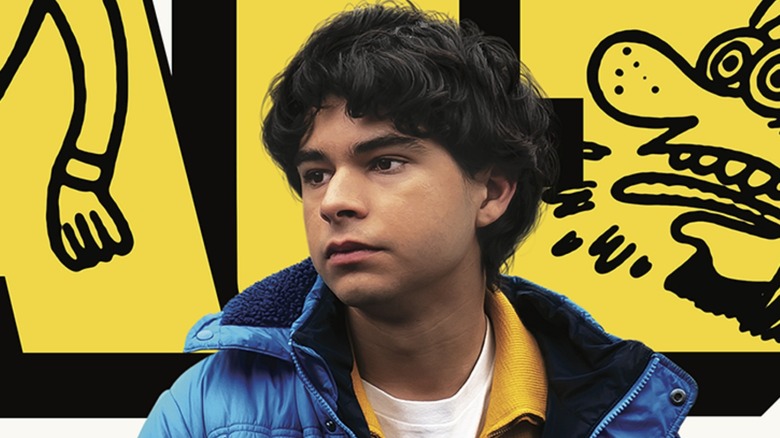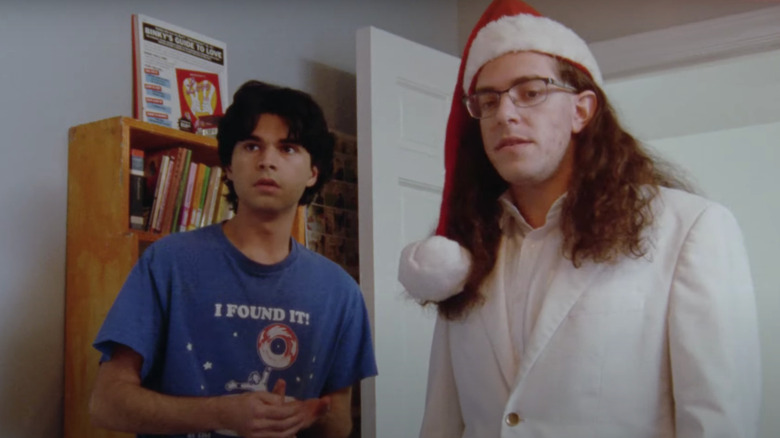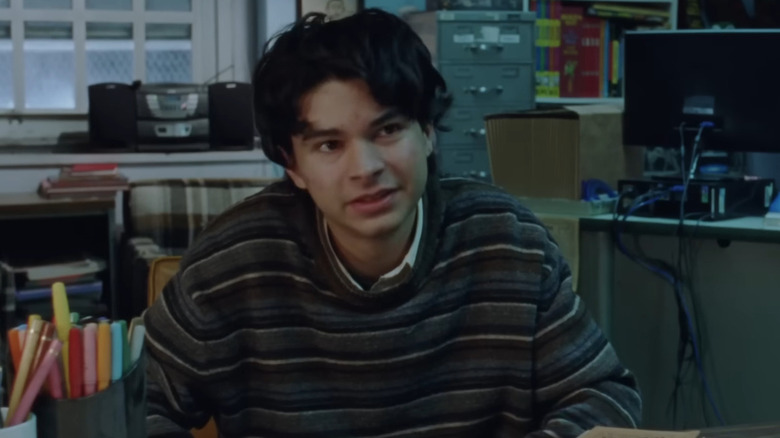Funny Pages Review: An Anxiety-Inducing Coming Of Age Comedy
- Consistently funny class satire
- A refreshing subversion of coming-of-age tropes
- Stellar performances from the entire ensemble
- It took Kline a decade to get this film made and released, and you won't want to wait that long to see what he does next
The narrative foundations of the coming-of-age genre are typically rooted in a character's journey towards a life-affirming experience that defines who they are, an assurance very few people actually get in their teenage years. "Funny Pages," the hilarious debut of actor-turned-director Owen Kline (best known to film fans for appearing as Jesse Eisenberg's younger brother in 2005's "The Squid and the Whale") manages to successfully rebuke this trope — in attempting to force a life-fulfilling experience of his own, protagonist Robert (Daniel Zolghadri, previously seen in "Eighth Grade") only continues to wreck whatever hopeful future that might have been laid out for him.
It results in the most misanthropic American coming-of-age film since Terry Zwigoff's "Ghost World," an anxiety-inducing comedy of increasingly unforced errors that will likely leave you wanting to crawl out of your own skin; it's not a cringe-comedy so much as it is a full-body squirm one.
Stuck on the same page
We open in middle-class New Jersey suburbia, where budding cartoonist Robert is contending with the death of his supportive mentor, an aging teacher who may have only been singing his praises due to his own nefarious intentions. Robert's art consists almost entirely of elaborately drawn cartoons of genitalia (which are brought to life via several established cartoonists writer/director Kline knows from the New York scene), but he still believes future greatness beckons despite this seemingly limited skill set.
Realizing that his comics heroes all suffered in their early careers, he decides this is the only way he will be able to match them, so he moves out from his well-to-do family home and into a viscerally repugnant apartment where he shares "half a room" with two middle-aged men. Additionally, he drops out of high school to get a low-paid job as an attorney's assistant, something which leads him to Wallace ("Our Flag Means Death" star Matthew Maher), a disgraced former low-level employee for a prestigious comics label. Although he's awaiting trial for attacking a pharmacist, and his job was only a "color separator" assisting the lead cartoonists, Robert sees him as a mentor — something which very quickly proves destructive for both parties.
In addition to subverting conventional coming-of-age ideals of gaining maturity and a newfound perspective on your place in the world — something which stubbornly remains the same no matter how much Robert attempts to alter his life circumstances — "Funny Pages" is one of the best cinematic rebukes to the idea that good art can only be created by suffering. Listening to advice repeatedly tossed his way by ill-advised mentors that he should avoid the typical college path to follow his own instincts doesn't result in any noteworthy creations. Robert ends the film as he starts: a teenager with a penchant for crude sexual caricatures, who can't find a clear direction towards the greatness he believes beckons.
It's arguably more realistic than your average film within this genre for how it highlights that nobody ever achieves their career goals this early in their lives; it may have a less-than-sunny disposition, but it's a lot less harmful than the lofty societal standards inherent in the typical teen drama, which tend to culminate with the main character securing their dream college position. Few people have those fortunes, and Kline understands there's more dramatic appeal in someone taking an ill-advised alternate route to a success that will forever elude him. You may never relate to the success story, but there's at least some joy in not being able to relate to this, either.
A subtle class satire
After a brief stint as a child actor, Kline retreated from his burgeoning career in the hopes of becoming a cartoonist. Although you'd expect him to object to "Funny Pages" being called autobiographical in any way (nobody would want to confess to finding an affinity with a protagonist so obnoxious), there are more than just broad similarities between director and character, not least a fascination with leaving behind upper class comforts to find meaning off the beaten path.
For Robert, this means moving into the most viscerally disquieting apartment ever committed to screen, where the boiler is left on all but 30 minutes of the week for "legal reasons," and he's instructed by the landlord to not tell anybody where he lives. For Kline, the son of actors Kevin Kline and Phoebe Cates, this meant finding himself in New York's underground film scene, eventually working behind the camera on several early Safdie Brothers productions — in turn, Josh and Benny Safdie serve as producers on this debut, with the filmmakers sharing a kinship for anxiety-inducing comedy.
The Safdies' earliest films, most notably the addiction drama "Heaven Knows What," earned some criticism as the pair hailed from a privileged background and were depicting a poverty-stricken world alien to them; critics were divided as to whether they were depicting this locale sympathetically or engaging in sensationalized gawping. It could be argued that "Funny Pages" is directly about this artistic struggle — of thinking that great art can only be created by leaving the trappings of a comfortable life behind to align yourself with those marginalized by society.
This is a largely overlooked satirical thread throughout the film, with the grainy 16mm cinematography by regular Safdies collaborator Sean Price Williams further underlining the thesis that there's something ridiculous in romanticizing the living situations of the struggling people living on the fringes. Yes, this is complicated somewhat due to the fact the eccentric working-to-under class characters Robert encounters are of the less than savory variety, their quirks mined for a reliable stream of dark laughs. However, Owen Kline seems to be implicating himself in this narrative approach, interrogating himself as much as his protagonist to understand what the allure of these spaces is to somebody who comes from a much more affluent background.
The release of "Funny Pages" marks the end long-lived production span for Kline, and the best thing I can say about the film is that by the time it's finished, I didn't want to have to wait another decade to see what he does next.


